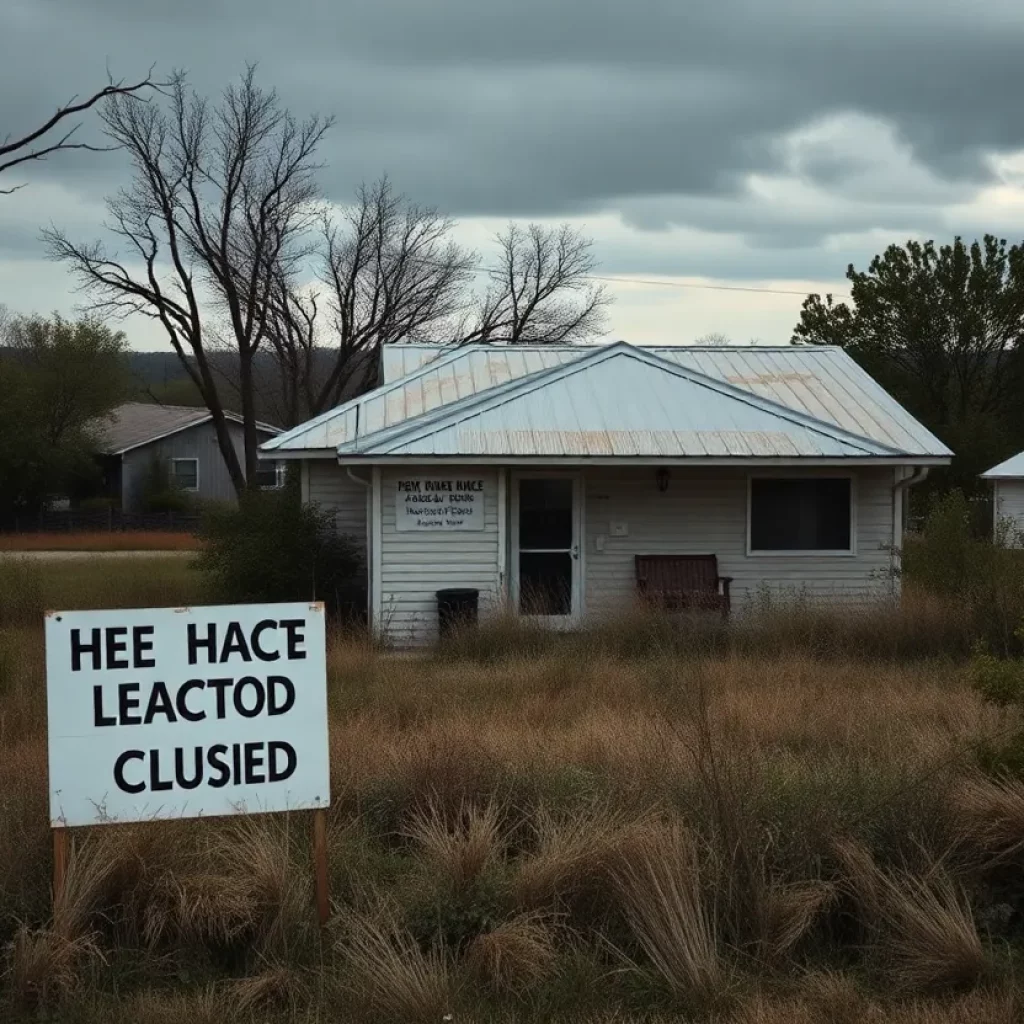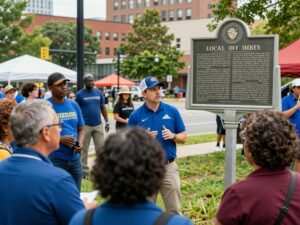News Summary
The Center for Asbestos Related Disease (CARD) in Libby, Montana, has been forced to close due to legal issues stemming from a $3.1 million judgment in favor of BNSF Railway. The clinic, which has provided crucial health services to residents exposed to asbestos, is at the center of a legal battle that raises concerns about public health and future support for those affected by asbestos-related diseases. With the federal government asserting rights over CARD’s assets, many residents face uncertainty regarding essential medical care.
Legal Turmoil Shuts Down Asbestos Clinic in Libby, Montana
The Center for Asbestos Related Disease (CARD) in Libby, Montana, has faced a devastating closure following a recent court order issued by the Lincoln County Sheriff’s Office. This significant action comes in the wake of a writ of execution, mandating CARD to pay a staggering $3.1 million to settle a judgment in favor of BNSF Railway, a major player in the railroad industry owned by billionaire Warren Buffett.
The chaotic closure is rooted in a 2023 lawsuit wherein BNSF accused CARD of filing an alarming number of fraudulent claims over several years. According to court findings, a Montana jury determined that CARD had submitted false asbestos claims that cost taxpayers significantly, with a shocking 337 out of more than 2,000 claims identified as fraudulent.
Asbestos Legacy in Libby
The closure of CARD marks a troubling chapter in the long history of asbestos exposure in Libby. The town’s asbestos saga began in 1881 when gold miners discovered vermiculite, a mineral that contains asbestos, igniting commercial mining activities in the 1920s. This mining has haunted the community for generations, and the consequences have been dire.
The Environmental Protection Agency (EPA) designated the Libby site for the Superfund program in 2002, leading to ongoing cleanup efforts aimed at alleviating the health crisis stemming from the area’s contamination. Asbestos fibers, known for their deadly effects, can become embedded in lung tissue, causing fatal diseases like mesothelioma and asbestosis. Although the precise number of deaths linked to asbestos exposure is not clearly known, it is estimated that hundreds have passed away, with over 3,000 residents currently affected.
BNSF Railway’s Role in the Legal Battle
In addition to CARD’s legal troubles, BNSF Railway has faced accusations of negligence and wrongful death lawsuits due to its failure to control asbestos dust, which has led to widespread contamination in the area. Notably, the cases of Thomas Wells and Joyce Walder, former residents near the BNSF railyard who tragically succumbed to mesothelioma in 2020, have intensified the scrutiny on the railroad giant.
In 2024, after the court found against it, CARD lost an appeal concerning a jury ruling that imposed a hefty judgment of $6 million against it. In an attempt to salvage its operations, CARD filed for Chapter 11 bankruptcy, only to have federal authorities intervene, resulting in the dismissal of bankruptcy proceedings in spring 2024.
Impact on Public Health Services
Senator Mike Cuffe has expressed disappointment over the clinic’s closure. He emphasized the critical role that CARD has played in maintaining community health and understanding asbestos-related issues. With its inception in 2000, CARD has provided essential health screenings and treatment for Libby residents exposed to asbestos, having certified over 3,400 individuals suffering from asbestos-related diseases and receiving more than $20 million in federal funding.
The situation is further complicated by the federal government’s position that BNSF lacks the legal authority to seize CARD’s assets, arguing the clinic is federally funded and thus falls outside the district court’s jurisdiction. This leads to a scenario filled with competing legal claims regarding federal interests in CARD’s assets and funding.
A Community at Risk
The community’s concern is palpable. With the clinic’s valuable services at risk, many residents fear they will be deprived of essential health screenings and treatments for asbestos-related ailments, vital for managing a legacy of exposure that has plagued the area for far too long. In 2024, CARD even received a $3 million federal grant for conducting asbestos health screenings, which accounted for a substantial 80% of its budget.
As the legal battles unfold, the future of CARD, its services, and the wellbeing of the residents of Libby hang in the balance, leaving many to wonder what will come next in this arduous fight against the lasting scars of asbestos exposure.
Deeper Dive: News & Info About This Topic
HERE Resources
Tragic Loss of Veteran Lawyer Paul Donnelly in Courtroom
Lawyer Takes on Asbestos Case Linked to Cancer Diagnosis
Controversy Erupts Over Withdrawal of U.S. Attorney Nominee
Lawyers Celebrate 4th Circuit’s Support for Asbestos Manufacturer’s Reorganization
Financial Struggles of Households in Charleston Area Highlighted in Report
Defense Verdict Upheld: Union Carbide Exonerated in Asbestos Case
Libby, Montana’s CARD Clinic Faces Closure Amid Legal Strife
Libby’s Asbestos Clinic Closure Sends Shockwaves Through Community
Closure of CARD Clinic Raises Health Concerns in Libby
Libby’s CARD Clinic Closure: Community in Crisis
Additional Resources
- Asbestos.com: Clinic That Helped Libby Mesothelioma Survivors Shuttered
- Wikipedia: Asbestos
- Encyclopedia Britannica: Asbestos
- Google Search: Libby Montana asbestos clinic
- Google Scholar: asbestos health effects
Author: STAFF HERE CHARLESTON
The CHARLESTON STAFF WRITER represents the experienced team at HEREcharleston.com, your go-to source for actionable local news and information in Charleston, Charleston County, and beyond. Specializing in "news you can use," we cover essential topics like product reviews for personal and business needs, local business directories, politics, real estate trends, neighborhood insights, and state news affecting the area—with deep expertise drawn from years of dedicated reporting and strong community input, including local press releases and business updates. We deliver top reporting on high-value events such as the Spoleto Festival USA, Charleston Wine + Food Festival, and the MOJA Festival. Our coverage extends to key organizations like the Charleston Metro Chamber of Commerce and the Charleston Museum, plus leading businesses in tourism and maritime industries that power the local economy such as South Carolina Ports Authority and the Charleston Visitor Center. As part of the broader HERE network, including HEREaiken.com, HEREbeaufort.com, HEREchapin.com, HEREcharleston.com, HEREclinton.com, HEREcolumbia.com, HEREgeorgetown.com, HEREgreenwood.com, HEREgreenville.com, HEREhiltonhead.com, HEREirmo.com, HEREmyrtlebeach.com, HEREnewberry.com, HERErockhill.com, HEREspartanburg.com, HEREaustin.com, HEREcollegestation.com, HEREdallas.com, HEREhouston.com, and HEREsanantonio.com, we provide comprehensive, credible insights into South Carolina's dynamic landscape.










